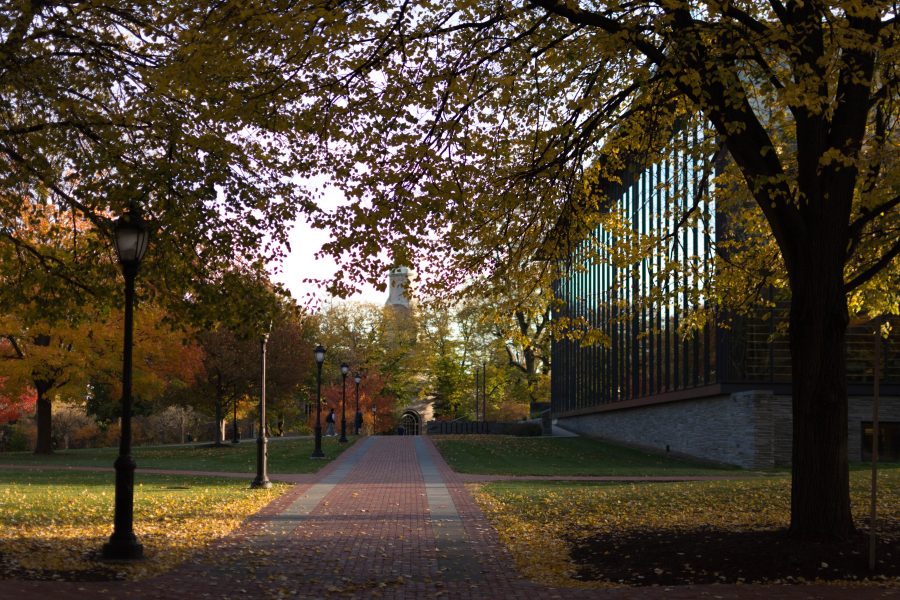Andrea Bonilla ’20 said she had mixed feelings when she saw that President Alison Byerly signed a statement last week in support of undocumented immigrant students in response to students’ fears of changes in immigration laws.
“I was obviously happy that she was on our side but also kind of sad because I know that there’s not so many people on our side, and I know there’s not a lot of people like me [at Lafayette],” she said.
Bonilla, who moved to the United States from Ecuador when she was five years old, is one of roughly 740,000 undocumented immigrants who have received temporary deferred action through the Deferred Action for Childhood Arrivals (DACA) program.
DACA allows many undocumented immigrants who entered the U.S. as children to receive employment authorization and a social security number. According to immigration attorney William Menard, this makes it easier for undocumented students to find ways to pay for college and get a job after graduating.
President-elect Donald Trump has supported ending the program, so it may be at risk once he takes office.
“To our country’s leaders we say that DACA should be upheld, continued, and expanded,” reads the statement Byerly signed along with more than 400 college and university presidents.
Byerly said in an interview that “a small number” of undocumented students attend the college, and she wants to provide them with support.
“I think it’s important that we do all we can to protect the status of undocumented students who are seeking higher education,” she said.
Director of Financial Aid Ashley Bianchi said Lafayette’s “first, very conscious acceptance of an undocumented student was with the class of 2019,” but before that the college may have accepted students while unaware of their statuses.
“DACA students represent what is best about our nation,” Pomona College President David Oxtoby, who organized the statement, wrote in an email to The Lafayette. “As scholars and leaders, DACA students are essential to our future. It’s also a moral issue. We all need to speak up and provide support during this time of uncertainty.”
Bonilla said DACA gives her a way to achieve a “better life.”
“DACA means everything to me because with DACA, I can work legally, and I was able to go to college like I am now, and then all of that would be taken away,” she said, adding that she hopes to work in film post-production someday.
She also said she is worried about people feeling more empowered to make discriminatory comments with Trump’s election. For her, reading the comments on Lafayette College’s Facebook post announcing Byerly’s signature to the letter in support of DACA was “devastating.”
“People, when they comment stuff like that, they don’t think about how somebody might kill themselves because of that,” she said. “Somebody might cry because of that. It affects your whole family. They don’t think about that.”
Two weeks ago, Byerly also signed an open letter along with roughly 110 college and university presidents urging Trump to “condemn and work to prevent the harassment, hate, and acts of violence” happening throughout the United States.

























































































































